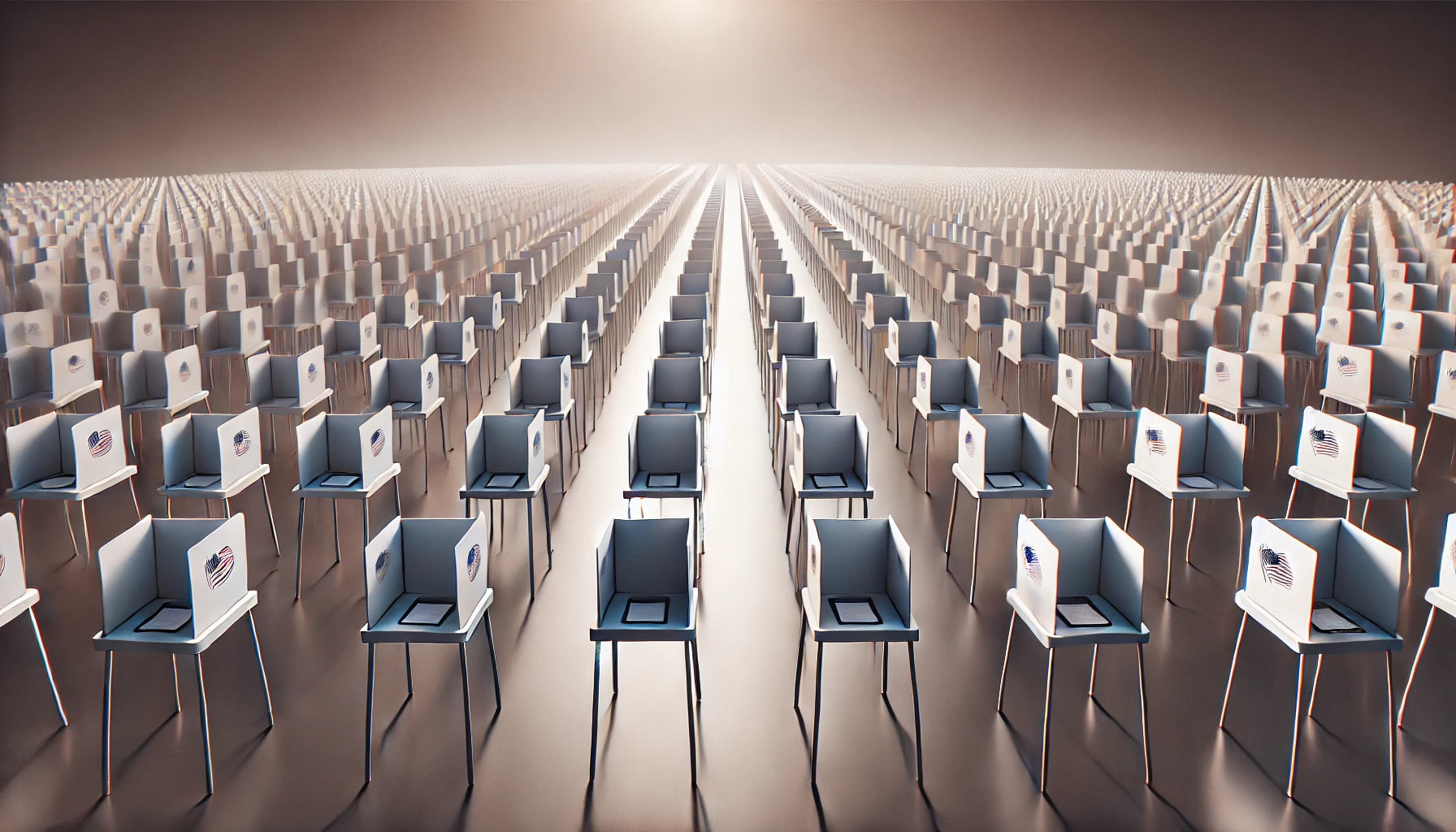November 05, 2024
Americans in 50 states and Washington, DC, are headed to the polls today to vote for the next president of the United States. While neither Vice President Kamala Harris nor former President Donald Trump has given much attention to artificial intelligence on the campaign trail — and AI hasn’t completely disrupted the election process as some experts feared — there are still important questions surrounding AI and the election.
For one, could AI-generated disinformation or deepfakes sow chaos that affects the results of the election? The hours and days ahead — both as Americans vote and as local officials count the vote — are crucial.
Earlier this year, election security experts and officials warned that AI-generated information could flood the campaign trial. While some has surfaced — including a fake Joe Bidenrobocall during New Hampshire’s primary and when Elon Musk shared an AI-generated video mocking Harris on his platform, X — its impact hasn’t been widespread.
Meanwhile, the US intelligence community has been proactive in identifying when foreign actors used AI to carry out influence operations. The Office of the Director of National Intelligence issued a statement in September noting that foreign countries such as China, Iran, and Russia have used AI to target voters about the election and political issues, such as immigration and the US-Gaza conflict.
But the most sensitive time for disinformation may still be ahead. “If it's extremely close, that gives more license for disinformation to run around because it’s easier to believe,” said Scott Bade, a senior geo-technology analyst with Eurasia Group. While fake information might not be AI-generated, he said, there could be something that tricks people and goes viral, such as an AI-generated video or image purporting to show fraud at a polling station.
Further, voting rights groups have issued warnings that Spanish-language voters are seeing more AI-generated misinformation about the election than are English speakers. This language gap could cause additional confusion at a time when the Latino vote has become a central point of intrigue in the election, especially after a comedian at a recent Trump rally made racist comments about Puerto Rico.
The election results will also impact how AI policy is shaped for the next four years — a critical time for this emerging technology. Trump’s approach has emphasized deregulation. Trump has criticized the CHIPS Act, under which the US has given subsidies to foreign companies like TSMC and Samsung to build in the US and cement America’s chip advantage over China. Trump wants to be seen as tough on China but prefers tariffs rather than subsidies.
“Under Trump, funding for AI research would likely prioritize military applications and national security, reflecting his America First agenda,” said Esteban Ponce de León, a resident fellow at the Atlantic Council’s Digital Forensic Research Lab, “whereas, Harris aims to direct funding toward societal challenges like health care disparities and climate change.”
Harris would likely continue Biden’s legacy on artificial intelligence, continuing to roll out incremental rules to rein in the tech industry if she becomes president, but her ability to push through a more serious AI agenda depends on the makeup of Congress — and, if polling is to be believed, Democrats are longshots to take the Senate even if the House and presidency are within reach.
Even if artificial intelligence hasn’t been front and center thus far this election cycle, there’s no guarantee it won’t still be. And the dam has broken, which means AI will be an unavoidable consideration of election security officials for years to come.
More For You
- YouTube
China was largely absent from the core conversations at the 2026 Munich Security Conference. That, says Ian Bremmer, is telling.
Most Popular
- YouTube
At the 2026 Munich Security Conference, Brad Smith announces the launch of the Trusted Tech Alliance, a coalition of global technology leaders, including Microsoft, committing to secure cross-border tech flows, ethical governance, and stronger data protections.
When the US shift from defending the postwar rules-based order to challenging it, what kind of global system emerges? CFR President Michael Froman joins Ian Bremmer on the GZERO World Podcast to discuss the global order under Trump's second term.
TODAY at 12 pm ET: Watch our Global Stage live premiere from the Munich Security Conference
Feb 13, 2026
Tune in today at 12pm ET/6pm CET for the live premiere of our Global Stage from the 2026 Munich Security Conference, where our panel of experts takes aim at the latest global security challenges. NY Times National Security Correspondent David Sanger moderates the discussion with Benedetta Berti, Secretary General, NATO Parliamentary Assembly; Ian Bremmer, President & Co-founder, Eurasia Group & GZERO Media; Dr. Wolfgang Dierker, Global Head of Government Affairs, SAP; and Brad Smith, Vice Chair & President, Microsoft.
© 2025 GZERO Media. All Rights Reserved | A Eurasia Group media company.
